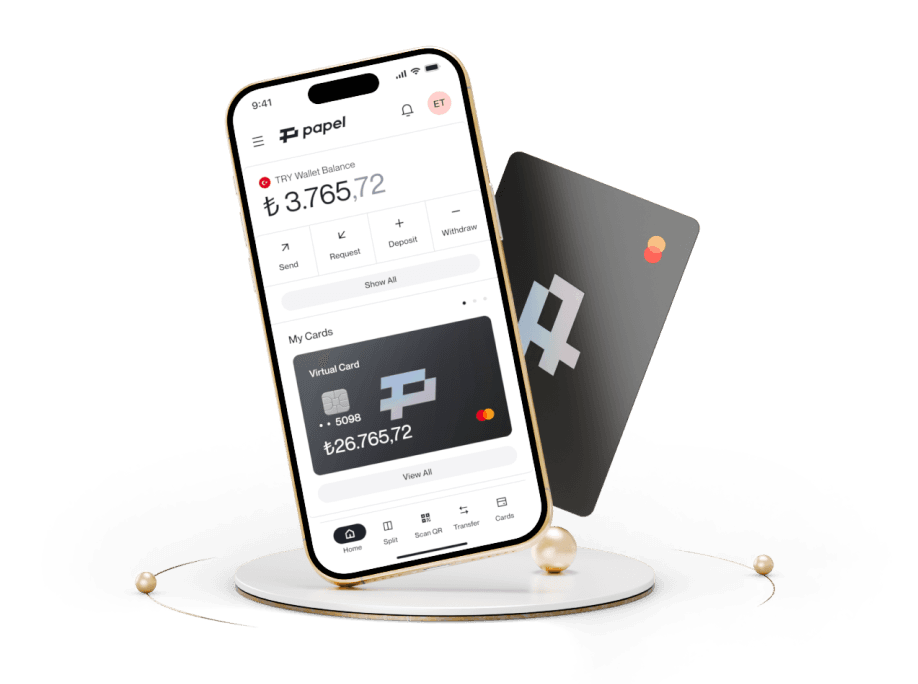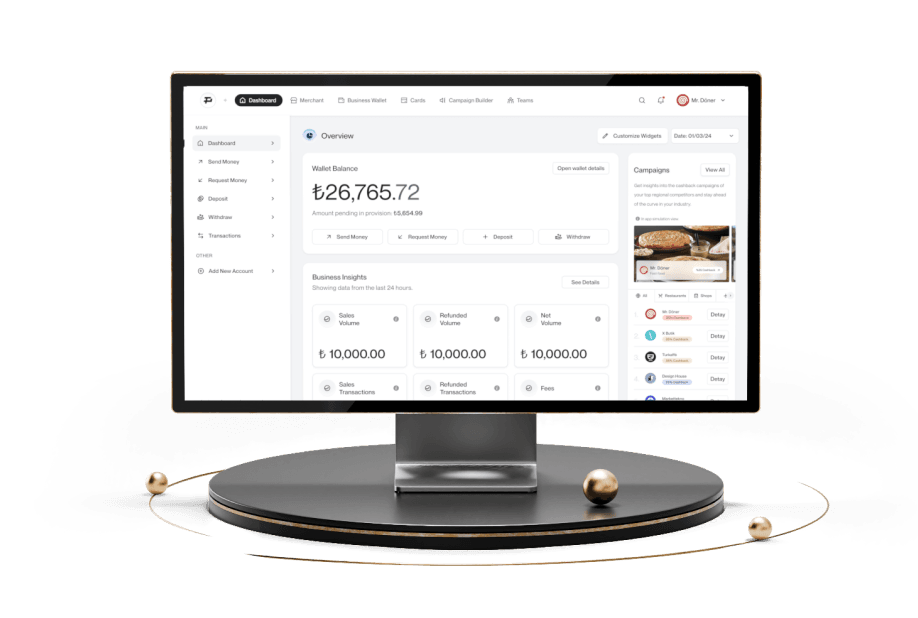Investment Funds: Types, Advantages, and Taxation in Turkey
The investment tools selected differ for each person: buying a quarter of gold every month is an investment, as is trading with leverage in derivative markets.
Investment funds operate on a simple principle: delegating savings to expert investors. To invest, we do not need to know how to read a company's balance sheet or perform technical and fundamental analysis. However, not everyone can afford professional advisory services from an investment advisor to manage their savings.
Here is where investment funds come into play. They act as 'pools' established by law and regulations. Hundreds, even thousands of investors in Turkey, transfer their savings to the fund to invest in the instruments specified in the fund's prospectus. Professional fund managers then invest in these specified instruments.
Types of Investment Funds in Turkey
Investment funds offer the opportunity to invest in various capital market instruments. You can invest your savings through funds from stocks to precious metals and from debt instruments to money market funds. There are nine different types of investment funds available in Turkey:
- Money Market Funds
- Debt Instruments Funds
- Variable Funds
- Equity Funds
- Fund of Funds
- Precious Metals Funds
- Mixed Umbrella Funds
- Participation Funds
- Hedge Funds
Money Market Funds
These funds consist entirely of highly liquid money and capital market instruments. Low-risk money market funds typically invest in government bonds, treasury bills, and repos.
Debt Instruments Funds
At least 80% of the fund's portfolio is invested in domestic and foreign debt instruments. These funds can be invested in both public and private sector debt instruments.
Variable Funds
These funds offer more flexibility to the fund manager without obligations like the 'at least 80%' requirement found in other fund types.
Equity Funds
At least 80% of these funds' portfolios are in stocks. There are equity funds that invest only in Borsa Istanbul, those that invest in foreign stock exchanges, and those that invest only in stocks of companies from a specific sector.

Fund of Funds
As the name suggests, these funds invest in other investment funds and exchange-traded funds. At least 80% of their portfolios are continuously in investment funds.
Precious Metals Funds
These funds invest in valuable metals such as gold and silver. At least 80% of the portfolio is in precious metals and capital market instruments based on precious metals.
Mixed Umbrella Funds
At least 80% of these funds' portfolios are invested in equity shares, debt instruments, or lease certificates, each worth at least 20% of the fund's portfolio. Mixed funds aim to generate dividend, interest, and lease certificate income.
Participation Funds
Participation funds are preferred by investors sensitive to interest rates. 100% of the fund's portfolio is continuously invested in lease certificates, participation accounts, equity shares, gold, other precious metals, and other non-interest-based money and capital market instruments approved by the authorities.
Hedge Funds
Free funds are available only to 'qualified investors.' According to the regulations set by the Capital Markets Board, a qualified investor is an individual or legal entity that owns at least one million Turkish Lira in Turkish and/or foreign money and capital market instruments.
Where Can Investment Funds be Purchased in Turkey?
Many private and public banks in Turkey have portfolio companies. Additionally, financial institutions established by law also offer portfolio services. Most funds created by banks and financial institutions are registered with the Turkey Electronic Fund Trading Platform (TEFAS). Managed by Takasbank, TEFAS facilitates easy access to portfolios. For example, if you have an account at Bank A and want to invest in funds, you can apply via the bank's mobile app or website to open a free account in your name with the Central Registry Agency. Then, you can invest in all the funds offered by Bank A. You can also invest in funds from other banks and financial institutions that accept investors, which are available on TEFAS through your account at Bank A. If your investment account is with Bank A, you can invest in a fund created by Bank B or C without having to open an account with those banks.
However, not every fund needs to be available on TEFAS. Banks and financial institutions can also create special funds for a limited number of investors. To invest in such funds not listed on TEFAS, direct contact with the relevant bank or portfolio company is necessary.

Is Investing in Funds Sensible?
Every investment tool is personal. The expectations of a 60-year-old who has achieved financial independence from an investment can be very different from those of a 25-year-old with a high appetite for risk. What may seem highly profitable to one might be too risky for another. Therefore, before evaluating an investment tool as 'sensible' or 'profitable,' it is essential to ask, 'For what type of investor is it suitable?'. Factors such as portfolio size, the investor's age, the target duration for investment return, and risk appetite should be considered when choosing between different investment instruments.
Advantages and Disadvantages of Investment Funds
Advantages of Investment Funds
Portfolio Diversification
Investment funds allow investors to invest in various assets such as stocks, bonds, real estate, gold, or other commodities, thus offering risk distribution. This means investing without 'putting all your eggs in one basket.' You are less affected by potential dramatic declines that impact-specific sectors.
Professional Management
Investment funds are managed by professionals specialized in financial markets. This allows individual investors to spend very little time while being assured that their investments are well-managed.
Accessibility
Fund investments can be made with very low capital. Some funds even allow investments of as little as 10 Turkish lira, enabling investment in various financial instruments with very little capital.
Liquidity
Investment funds generally have high liquidity, allowing investors to convert their shares in the fund into cash whenever they wish.

Disadvantages of Fund Investment
Management Fees
Investment funds involve costs such as management and service fees, which are deducted from the returns earned.
Market Risks
Funds invested in are subject to market dynamics and thus can be affected by market fluctuations.
Settlement Periods
Mostly, settlement periods in fund investments are T1 and longer. Settlement is the difference between the date a transaction is made and the date it is executed. For example, a transaction with a T2 settlement period is executed two days after the transaction is made. Particularly in funds that trade on foreign exchanges, the settlement period can extend to T3. This can disadvantage investors who wish to convert their fund investments into cash on the same day.

